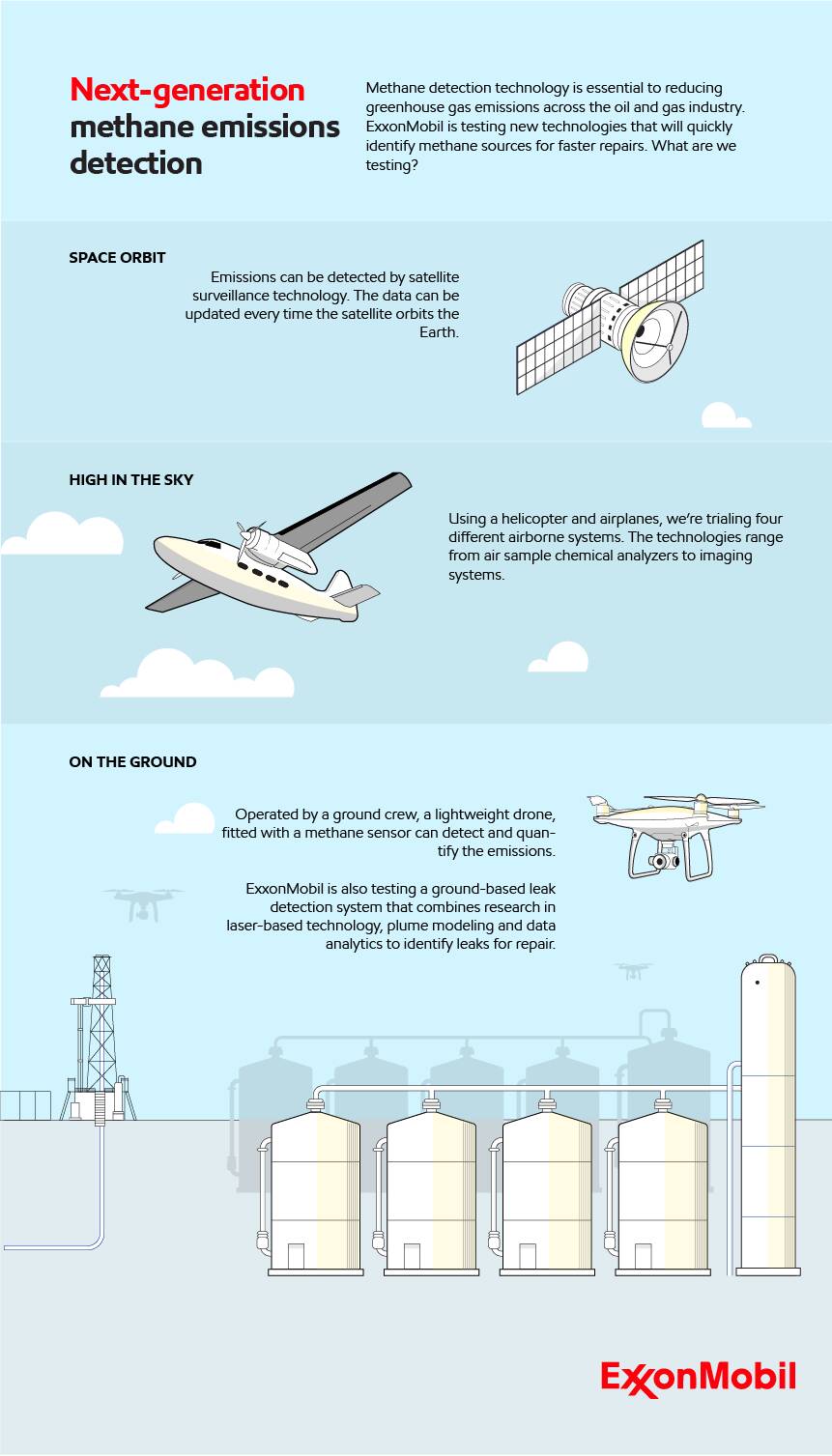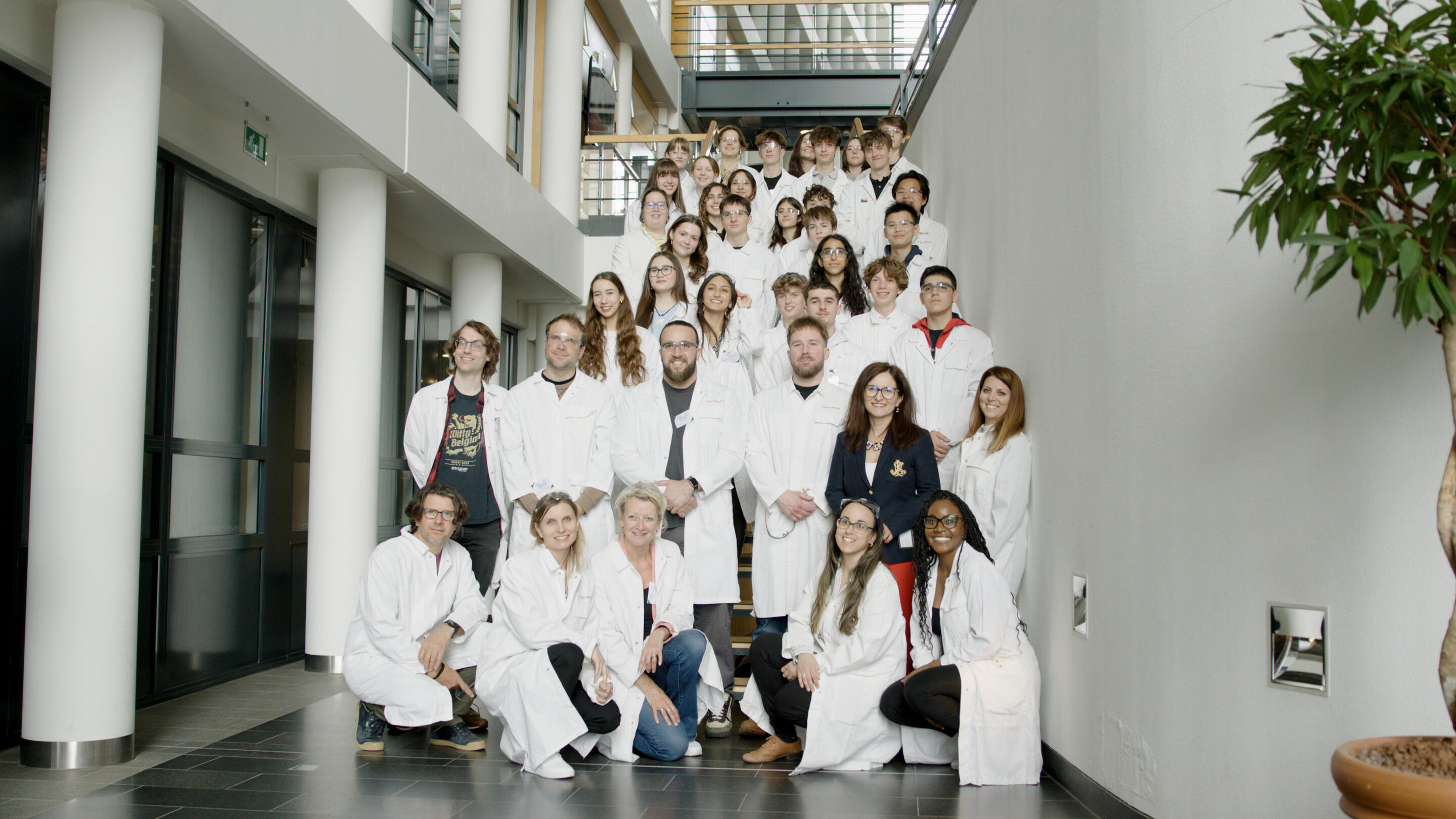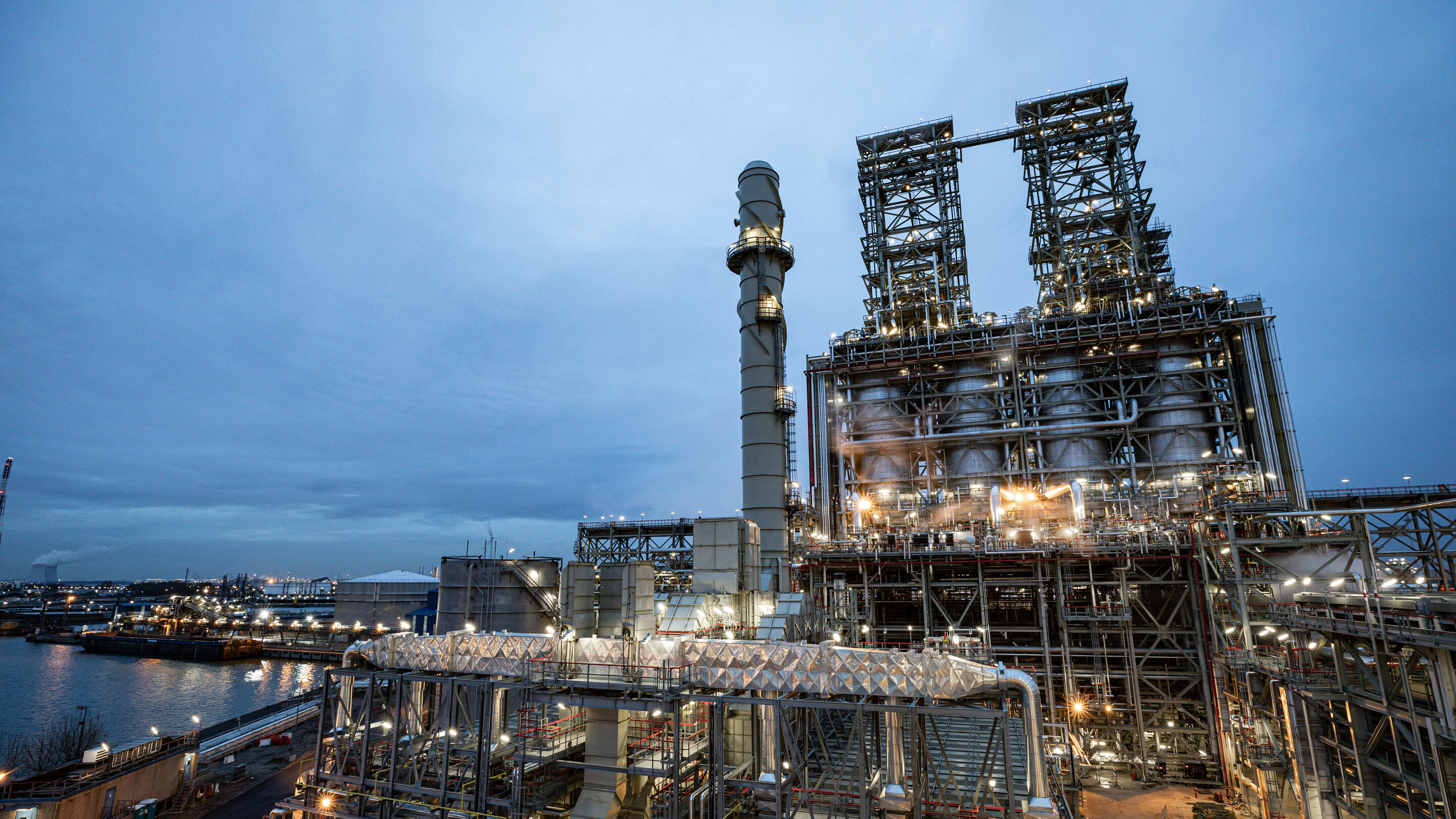selected item
News
2 min read
•Using new technologies to reduce methane emissions
ExxonMobil is pursuing technological innovations to cut oil and gas-related methane emissions and reduce methane leaks.
News
2 min read
•
Reducing methane emissions from oil and gas operations is an important part of reducing greenhouse gas emissions. Advances in technology can help detect and identify the sources and improve the ability to respond quickly – but there’s no one-size-fits-all solution.
That’s why ExxonMobil is leading testing for the most promising next-generation methane detection technologies at 1,000 sites in Texas and New Mexico, with the aim of identifying effective, scalable solutions.
Here’s a look at the technologies ExxonMobil is working on – from outer space to on the ground. We’re also providing a roadmap for the industry to zero in on and stop methane leaks and reduce emissions.
That’s why ExxonMobil is leading testing for the most promising next-generation methane detection technologies at 1,000 sites in Texas and New Mexico, with the aim of identifying effective, scalable solutions.
Here’s a look at the technologies ExxonMobil is working on – from outer space to on the ground. We’re also providing a roadmap for the industry to zero in on and stop methane leaks and reduce emissions.

Delivering industrial solutions
We're helping accelerate society's path to net zero by scaling up emissions solutions for key industries
Explore more

Saving Europe’s Core Industries: Cut the Red Tape
- Europe's petrochemical sector is on life support. Site closures are accelerating, with tens of thousands of jobs lost. And this erosion extends well beyond these sectors.
- ExxonMobil has been part of Europe's progress for more than 135 years and wants to be part of the solution.
- The urgency is real because European policy is preventing, not enabling, investment. The policy framework must offer a realistic business case that makes sense.
Viewpoints
•
3 min read
•
The Sci-Tech Challenge: Shaping the future of STEM in Europe
- In May 2025, ExxonMobil and JA Europe hosted the annual Sci-Tech Challenge.
- The competition brings young Europeans together to apply their STEM skills.
- This time, the task was making plastic recycling more efficient.
News
•
5 min read
•
Europe’s industrial future is under threat – but policy reform can change that
- The European Union’s (EU) Corporate Sustainability Due Diligence Directive (CSDDD) imposes unrealistic burdens on companies, discouraging investment and innovation.
- Current EU policy on advanced (also known as chemical) recycling undermines proven solutions to plastic waste, halts major investment in the region, and jeopardizes the EU’s ability to meet its plastic waste reduction targets.
- Without urgent regulatory reform, companies may be forced to scale back or cease operations in the EU, weakening Europe’s industrial base and slowing progress on decarbonization and economic security.
Viewpoints
•
3 min read
•
A bone-crushing burden: Darren Woods discusses CSDDD
- The European Union continues to drown businesses in red tape, with the Corporate Sustainability Due Diligence Directive being one of the most egregious examples.
- These costly regulations would apply not just to companies with operations in Europe, but to anywhere else in the world they do business.
- Without reform, the directive would impose unworkable burdens on global businesses, forcing companies to re-evaluate doing business in the region, and ultimately weaken EU industrial competitiveness.
News
•
2 min read
•
Our business transformation continues with a reorganization of our business in Europe, centralizing the majority of EU employees at key locations
Today, we are announcing the next step of our global business transformation and have informed our employees in the European Union and Norway that we intend to reorganize our footprint in the region.
News
•
2 min read
•
